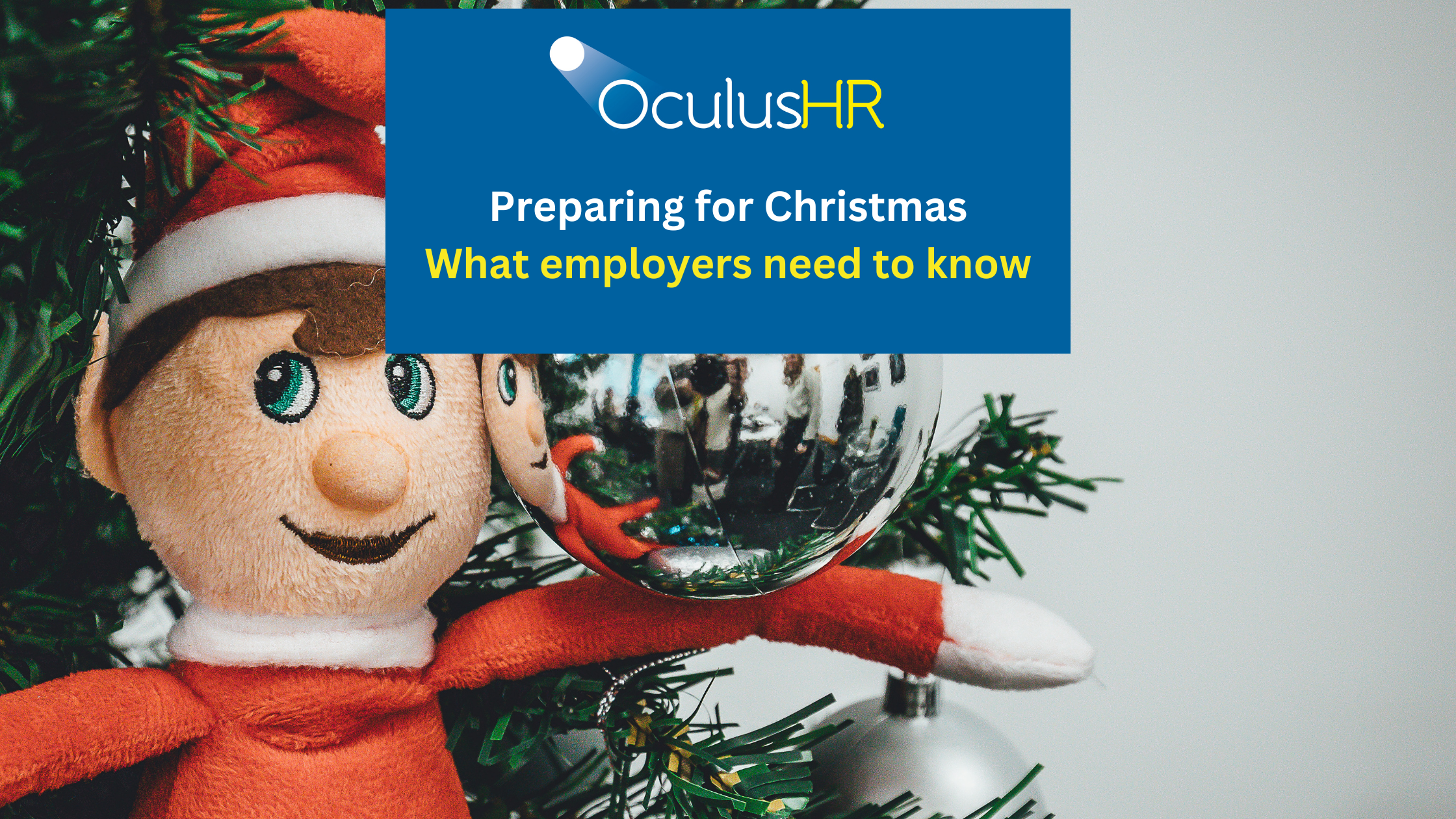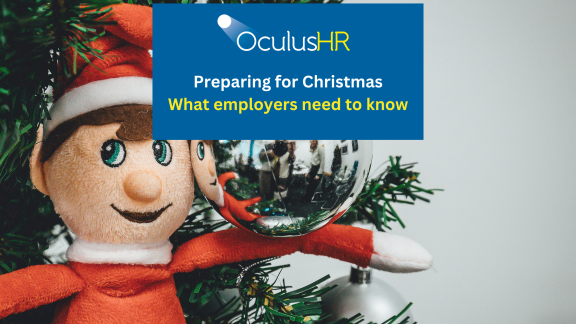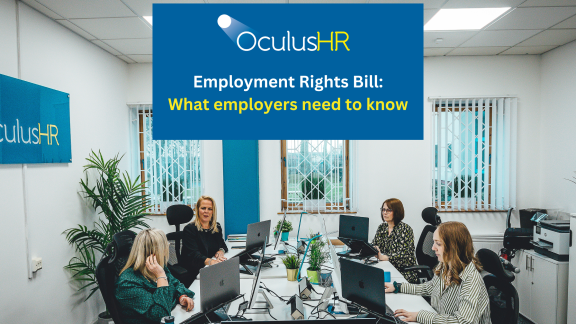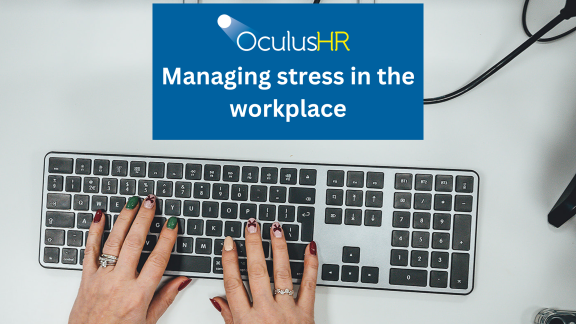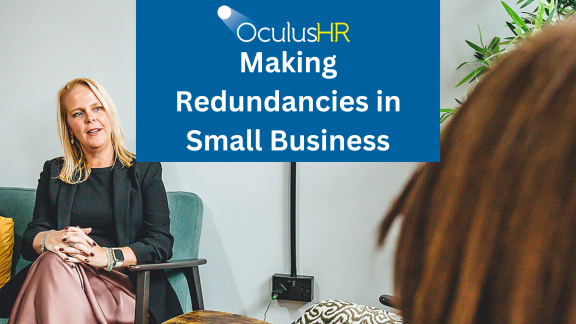As the year draws to a close, December brings a welcome opportunity to celebrate together, reflect on achievements, and thank your team for their hard work.
But alongside the celebrations, the festive period also brings a unique mix of HR challenges, from annual leave clashes and alcohol-fuelled Christmas parties, to financial pressures, inclusivity considerations, and wellbeing support.
But with a little planning, Christmas can be both enjoyable and compliant. Here’s what employers should be thinking about now when preparing for Christmas in the workplace, to make sure the festive season runs smoothly for everyone.
Plan Christmas annual leave early
December annual leave requests can be one of the biggest pressure points for HR and managers. People want time off, demand peaks at the same time, and without clear processes, things can quickly become stressful.
To avoid problems later:
- Encourage employees to submit annual leave requests early
- Apply your policy consistently – first come, rotation system, business need, or a mix
- Be transparent about how decisions are made to avoid perceptions of unfairness
- Communicate any company shutdown periods or required working days
Remember: you’re not obliged to approve all leave requests, but you are obliged to handle them fairly. Clarity now prevents conflict later.
Rethink Christmas parties for a more inclusive workforce
Workplace Christmas parties have changed. Not everyone wants, or feels comfortable with, a traditional late-night, alcohol-heavy event.
Gen Z in particular are driving a shift towards wellbeing-led, inclusive activities. We’re seeing more businesses choose workshops, daytime celebrations, or multi-option events.
Ask yourself:
- Is the format suitable for all ages and preferences?
- Does it reflect your culture and values?
- Does everyone feel welcome, including non-drinkers and employees of different faiths?
A simple internal poll can work wonders. Recent alternatives we’ve seen include:
- Christmas brunches
- Festive wellbeing activities
- Escape rooms
- Team charity volunteering
The goal isn’t to remove the fun, it’s to make sure everyone feels included.
Share pre-event reminders (without killing the mood)
This is always a tricky balance. You want people to relax and enjoy the celebration, but you also need to protect employees and the business.
A friendly pre-event reminder can cover:
- Expected behaviour and respect for others
- Your stance on harassment and discrimination
- Alcohol consumption (and support for non-drinkers)
- Transport options and getting home safely
- Social media guidelines
Tone is everything. Aim for warm and positive, not heavy-handed.
Also remember, even if the party is off-site or out of hours, employers still have a duty of care and may still be legally liable for behaviour.
What happens after the party matters too
The morning after can be just as important as the night itself.
Businesses should remind managers how to handle:
- ‘Sick days’ that may not be genuine
- Concerns raised about behaviour
- Follow-up meetings
- Confidential reporting
If your culture encourages psychological safety, people will feel more comfortable speaking up if something didn’t feel right.
Secret Santa and gift giving – set expectations early
Secret Santa can be great fun, or unintentionally awkward.
To keep it positive:
- Set a clear budget
- Remind people to avoid personal, offensive, or inappropriate gifts
- Encourage an opt-out option
- Consider inclusive alternatives for those who don’t celebrate Christmas
- Keep things voluntary and light-hearted
This prevents well-meaning gestures from turning into HR issues.
Manage December workloads and stress levels
The end of the year can be mentally, emotionally, and financially overwhelming for many employees. Workloads often spike and energy dips.
Employers can make a real difference by:
- Encouraging breaks and time outdoors (daylight matters!)
- Offering flexible hours where business needs allow
- Checking in with team members one-to-one
- Managing deadlines realistically
- Signposting support, especially for mental health
A small wellbeing gesture in December often has a big impact.
Support employees who don’t celebrate Christmas
It’s important to remember that Christmas isn’t universal.
Avoid making assumptions, and take time to understand:
- Who might feel excluded
- Whether activities are culturally sensitive
- When language could be more inclusive
For example, replace “everyone loves a Christmas night out!” with “we’re planning a festive team gathering, everyone is welcome to join.”
Inclusivity doesn’t dilute the celebration, it strengthens the culture.
Bonuses, gifts, and financial sensitivity
If your business gives Christmas gifts or bonuses, clarity is essential.
Consider:
- Are bonuses contractual, discretionary, or performance-based?
- Can you communicate early to manage expectations?
- Are you following HMRC rules on trivial benefits?
- How can you support employees facing financial challenges without overcommitting?
It doesn’t have to be a huge, expensive gesture, a simple thank-you, written card, or small gift can go a long way to making your team feel appreciated and valued.
Review your HR policies before December arrives
A quick policy review now helps avoid issues later.
Useful policies to revisit include:
- Conduct and disciplinary
- Harassment and bullying
- Alcohol and substance misuse
- Social media
- Annual leave and time off
- Expenses (e.g., taxis after the party)
Managers should feel confident applying these consistently.
Setting your team up for a great Christmas
Christmas should be a positive time for your people, something that strengthens connection, celebrates achievement, and ends the year well.
With the right preparation, you can avoid the common pitfalls, protect your people, and create a festive season that feels fun, fair, and inclusive for everyone.
If you need guidance on Christmas policies, party planning, employee wellbeing, or annual leave challenges, we’re here to help.
